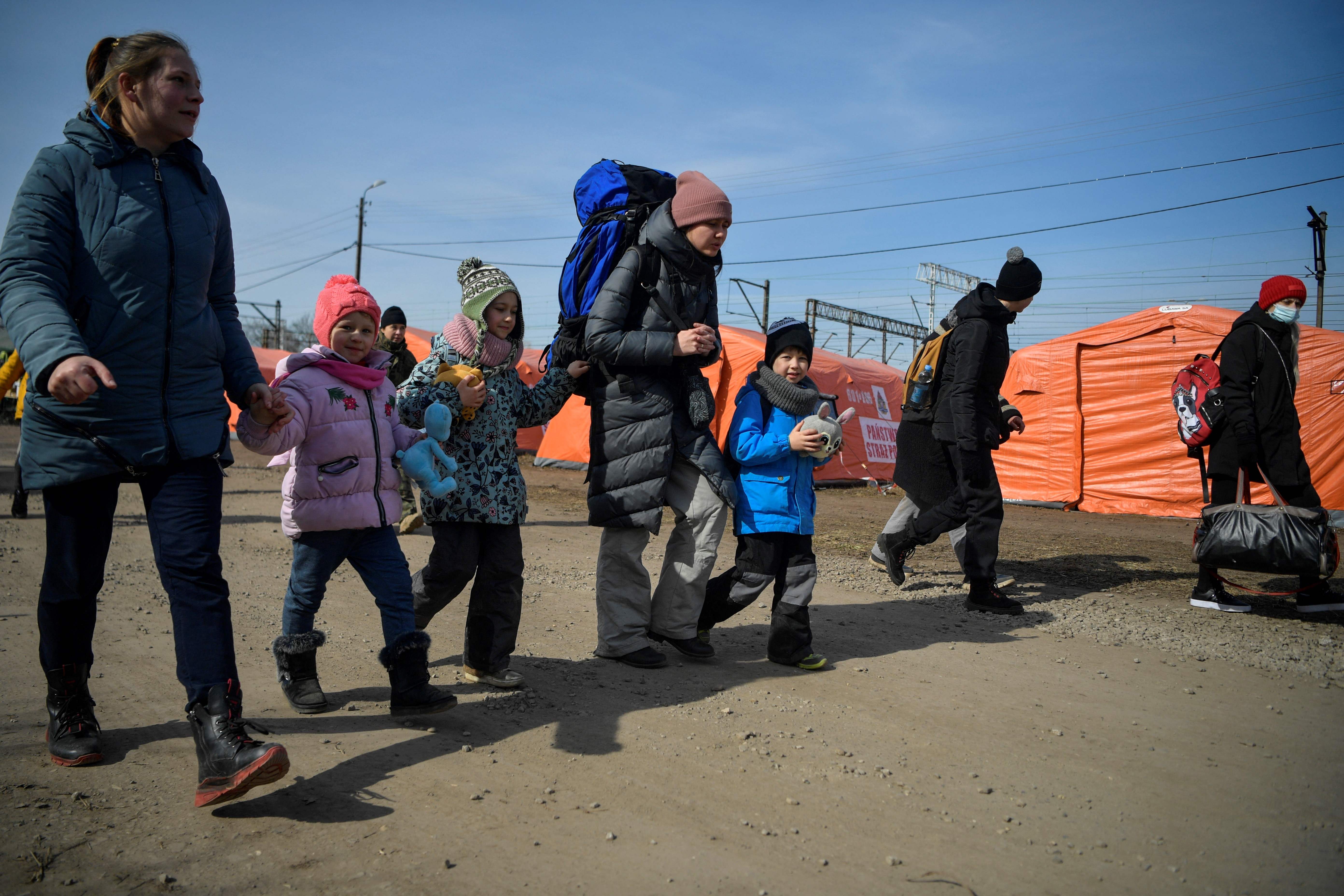Let all refugees work – but we must also ensure they aren’t exploited
There is strong public support for doing more to help, but the labour market isn’t all it might be, writes James Moore


It’s one thing to let in refugees fleeing the conflict in Ukraine – a move the British public seems a lot keener on doing than their mean-spirited government – but what happens then?
The fact that parts of Britain’s business community have been getting together with the aim of addressing that issue is a welcome sign.
A coalition has been formed under the auspices of entrepreneur Emma Sinclair, which has been looking at helping refugees to find work and accommodation, even with improving things such as language skills.
Perhaps it can help push a government, whose default approach to refugees has been “keep ‘em out”, into taking on a more enlightened stance, preferably one that doesn’t leave grandmothers stuck in Calais or people fleeing bombs queuing outside embassies in the freezing cold.
Sinclair is reportedly having meetings with ministers. If she can work the oracle, this is potentially a win-win situation.
Large numbers of firms are sitting on large numbers of vacancies they can’t fill (or say they can’t). They insist that the UK labour shortage isn’t their primary motivation for acting. They want to help. But sometimes virtue is its own reward.
We shouldn’t be too cynical. If you arrive somewhere with a small bag and the clothes on your back, the ability to start earning could be priceless. Even Britain’s sclerotic ministers ought to be able to see the value of acting on that.
So three cheers? Wait just one moment, because we should also pay due regard to the risks refugees may find themselves confronted with. They are highly vulnerable as a group and this makes them prime targets for exploitation. Evidence of the latter isn’t hard to find in the British labour market.
Earlier in the conflict, a British minister tweeted that Ukrainians could come over on seasonal worker visas to pick fruit. This was staggeringly crass, even before you consider the exploitation rife in that sector.
Prior to the pandemic, the Gangmasters & Labour Abuse Authority reported an “increasing number of suspected cases” of reported exploitation in the UK.
“The UK is described as being one of the main destinations of trafficked workers in Europe, and labour exploitation was recorded as the most frequent type of exploitation for both adults and minors in the UK in 2016 and 2017,” it warned.
Then the virus struck. According to an investigation by Open Democracy, the pandemic provided “the latest in a long line of opportunities for the criminals that exploit [the victims of modern slavery]”.
Care to guess where the next opportunity could come from if the authorities don’t act to nip it in the bud?
That is the extreme end of the potential problems. It is just as likely that refugees will find themselves shoved into poorly paid, insecure work of which Britain has a ready supply.
The Living Wage Foundation will this morning publish research on the consequences of it.
Based on a survey of more than 2,000 UK adults by Survation, it found that nearly a third (30 per cent) of workers in full- or part-time employment are given less than a week’s notice of their shifts. That rises to 50 per cent of those earning below its “living wage”, which is based on the real cost of living.
More than a fifth had experienced shifts being cancelled unexpectedly. The vast majority of them were not compensated for this at their full rate of pay.
Short-notice working led to an increase in childcare bills for a significant number. Nearly one in three (29 per cent) of those on less than the Living Wage were forced to rely on borrowing.
There is, in Britain, an “insecurity premium” and it can be substantial.
Simply earning enough to live on in an expensive country could prove challenging.
Large employers with big names will at least pay what the government calls the national living wage, because it is illegal not to. But it is not a real living wage.
Lush, the cosmetics company, is one of the companies looking to hire refugees and has featured prominently in the reports about the efforts being made by British businesses. It is an accredited “living wage” employer, which pays the rates set by the Foundation. Good news for the people who go to work there.
M&S, Morrisons and Asos, however, are not.
Britain needs to do better by people fleeing conflict, not just in Ukraine but also in Syria, Afghanistan and other war zones. That includes helping them find accommodation and work.
But by the same token, we should also make every effort to protect them from the risk of exploitation. And we should work to ensure that they can secure jobs that pay them enough to live on.
The ministers meeting with Sinclair really ought to be spending time with people who can help with that. The Foundation would be a start, as would the TUC, among others.






Join our commenting forum
Join thought-provoking conversations, follow other Independent readers and see their replies
Comments